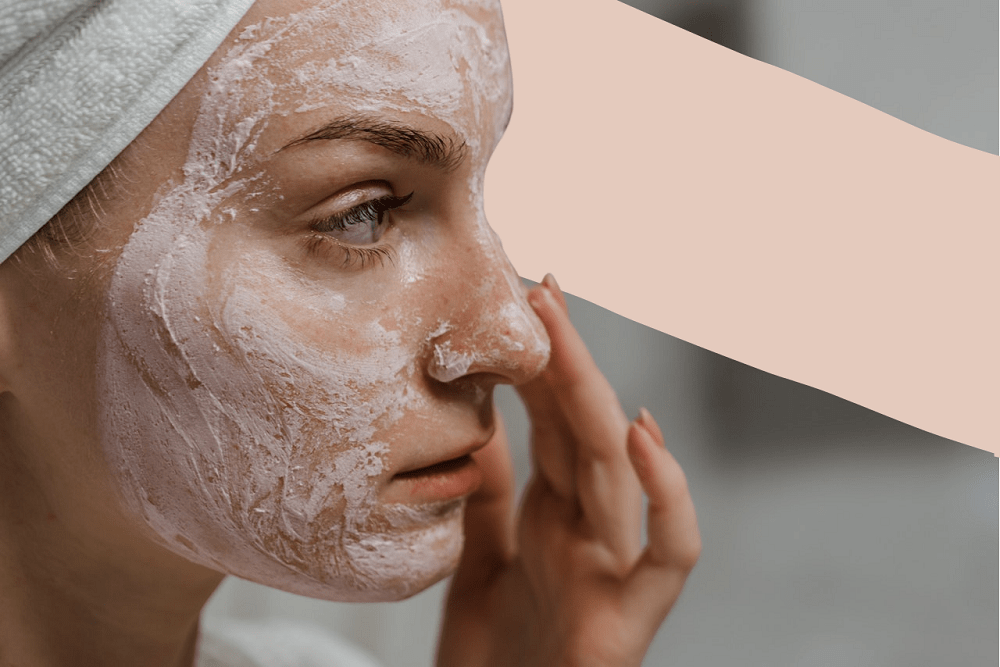Your skin is your largest organ, covering, on average, an area of 2 square metres and comprising 300 million cells. It’s also one of the body’s most incredible organs, essential as a first barrier of defence against microbes and the elements, but also crucial as a regulator of temperature and as the facilitator of sensations, warning you of danger and causing pleasure, equally.
As such, your skin needs care, attention and upkeep to function to its full potential, just like the rest of you. Though a skincare routine is primarily used for aesthetic purposes, it’s important you consider the ingredients and functions of various products in order to ensure you’re giving your skin the best chance to feel and look healthy.
Look out, particularly, for moisturisers, vitamins, and antioxidants. Moisturisers are essential for keeping your skin from drying out, while vitamins can help make skin look clearer and feel less dry. Antioxidants help protect your skin from free radicals which can cause premature aging of your skin.
But as much as seeking out positive ingredients is important, it’s a good idea to scrutinise skincare products in order to give harmful ones a swerve. With that in mind, here are some key ingredients you should look for when buying skincare products.
WHAT EXACTLY IS A SKINCARE ROUTINE?
Your skincare routine determines how healthy your skin looks and feels. Skincare products usually work by cleansing, exfoliating, moisturising, protecting, or fragrancing the skin.
To stay on top of a good skincare routine, it is important to make sure you are using the best product possible. There are five key ingredients that you should look for in skincare products. These ingredients will help ensure you have a good skincare routine and healthy, glowing skin.
- Water is the primary ingredient in the majority of moisturisers because it helps to hydrate and soften the skin.
- Vitamin A (retinoids) helps to reduce redness and irritation by gently exfoliating the outermost layer of the skin, known as the stratum corneum, to remove excess layers.
- Salicylic acid can help unclog pores and prevent breakouts by dissolving excess sebum on your skin surface. It is a common ingredient in anti-acne products. Overuse can result in dehydration, so it’s generally not recommended to use products containing salicylic acid everyday.
- Niacinamide, a form of the essential nutrient vitamin B3, helps to minimise large pores and improves skin texture which helps to reduce the appearance of flakiness.
- Phytic acid, a substance found in many plant based foods, is a powerful antioxidant that helps protect the skin from environmental damage.
Each of these ingredients can help improve your skincare routine and boost healthy-looking skin, but only if used properly. It is important to read the labels on any and all skincare products that you are considering buying in order to understand the correct method and frequency of application.

SKINCARE PRODUCTS WITH MOISTURISING BENEFITS
Moisturisers are important because they help to hydrate the skin. The primary ingredient in most moisturisers is water though they also often contain other ingredients that help to protect or heal the skin, such as Vitamin A, salicylic acid, niacinamide, and phytic acid, as we mentioned earlier. These ingredients can work together to improve your skin’s appearance and make it look healthier.
However, it is important to note that most moisturisers do not contain sufficient levels of SPF (Sun Protection Factor), which is an ingredient in many sunscreens. SPF is essential for protecting the skin from UVB rays that can cause skin damage and sunburn.
It should also be noted that some moisturising products may include a little SPF so they can legally claim to be ‘anti-ageing’, but the amount used is rarely enough to provide protection.
We’re keen on the award winning Beverly Hills MD Dermal Repair Complex, which we’ve found brings about a renewed plumpness and reduced dry patches when used as part of our skincare routine.
SKINCARE PRODUCTS WITH SUNSCREEN
According to the Skin Cancer Foundation, if you are going to be out in the sun for any period of time, you should use sunscreen. Sunscreen helps to protect your skin from UVA and UVB rays, which can lead to serious long-term damage. You should also wear a hat and sunglasses when outside in direct sunlight for more than fifteen minutes, to mitigate the harmful effects of those rays.
Sunscreens are often water-resistant, which means they can be worn at the beach or by a pool without needing to reapply them every few hours. This type of product comes in different forms, including gels, lotions, powders, and sprays. You should also make sure that the sunscreen is broad spectrum with an SPF of at least 15.
Read: 5 reasons why you should be wearing SPF in the winter
SKINCARE PRODUCTS WITH EXFOLIANTS
Exfoliants like retinoids and salicylic acid help to remove dead skin cells on the surface of your face, which makes it appear smoother. Exfoliation helps to make your skincare routine more effective by removing excess sebum (skin oil) and dead skin cells.
These ingredients can help prevent acne breakouts and blemishes while also helping you maintain a smooth complexion. Exfoliants are especially important if you have dry or sensitive skin, which is likely to accumulate dead skin cells faster than thicker types of skin, for instance, that which is oily.
Exfoliating ingredients may also contain additional benefits that will help you in your skincare routine. For example, retinoids can help to reduce signs of aging by increasing the rate at which your skin produces new cells. Salicylic acid can also helps to remove acne-causing bacteria from your pores and helps treat breakouts faster.
That said, as with any acidic ingredient used for exfoliation, overuse can lead to damage. Always consult the advice of the skincare product before using, and if you suffer from any skin sensitivity issues, it’s worth consulting a dermatologist before introducing a new product to your skincare routine, too.
We’re particularly enamoured with Biologique Recherche acclaimed Lotion P50 1970. With its combination of AHA and Vitamin B3, it helps remove excess sebum from skin cells for smooth, healthy-looking skin. It’s gentle enough for sensitive or irritated skin and can give you an even tone with few blemishes.

SKINCARE PRODUCTS WITH ANTIOXIDANTS
Antioxidants help to protect your skin from environmental damage such as pollutants, UV sun rays, and other harmful factors that can cause early signs of aging. According to the skin care professionals at dermaboss.com, they also help the skin to appear smoother and more radiant.
Antioxidants can be found in many skincare products including moisturisers, exfoliants, and sunscreen. Some of the most common antioxidants found in skincare products include Vitamin A or retinoids, Vitamin C, Vitamin E, and coenzyme Q10.
- Retinoids help to protect your skin from environmental factors by increasing collagen production. They also work to treat acne breakouts faster by clearing out existing bacteria that contribute to acne.
- Vitamin C helps to improve the appearance of your skin by brightening it and making it look more radiant. It can also help protect your skin from environmental damage.
- Vitamin E is especially beneficial for helping to prevent early signs of aging, such as fine lines, wrinkles, and age spots.
- Coenzyme Q10 is found naturally in your skin cells. It can help to reduce the appearance of lines, wrinkles, scars, and sun damage.
Antioxidants are especially important for anyone looking to improve their skincare routine by finding a product that will protect their skin from the environment while also improving its appearance.
INGREDIENTS THAT YOU SHOULD AVOID, AND WHY
When shopping for skincare products, there are several ingredients that you need to avoid, as they may not be the best option for improving your health and appearance.
- Sulfates are synthetic detergents that can strip essential oils from the skin (which is a natural shield protecting the skin’s outer layer) in order to clean it properly. They are very common as a foaming agent in products.
- Parabens are used as a preservative and they help to prevent the growth of fungus, bacteria, and other microorganisms that can cause illness. But when applied to the skin, it can cause dermatitis, inflammation, and allergic reactions.
- Phthalates can affect the endocrine system by disrupting hormone functions which can lead to reproductive issues and birth defects.
- Mineral oil is petroleum-based and should be avoided because it can block the pores, clog your skin, cause acne, and other problems. Petrolatum is a derivative of mineral oil that has been processed to make it easier to apply to the skin. It can still be a problem for those with sensitive skin types because it can cause dermatitis.
Read: 7 IDEAL skin care ingredients to look out for
THE BOTTOM LINE
A simple but effective skin care is useful in many ways; it helps to make your skincare routine more effective by removing excess sebum (skin oil) and dead skin cells, as well as preventing acne breakouts and blemishes while also helping you maintain a smooth complexion.
Many ingredients can help with this process, such as antioxidants which help protect your skin from environmental damage such as pollutants, UV sun rays, and other harmful factors that can cause early signs of aging, or retinoids which work to treat acne breakouts faster by clearing out existing bacteria that contribute to acne.
We hope we’ve provided some helpful tips for those who want their product choices to be healthy ones, too.





